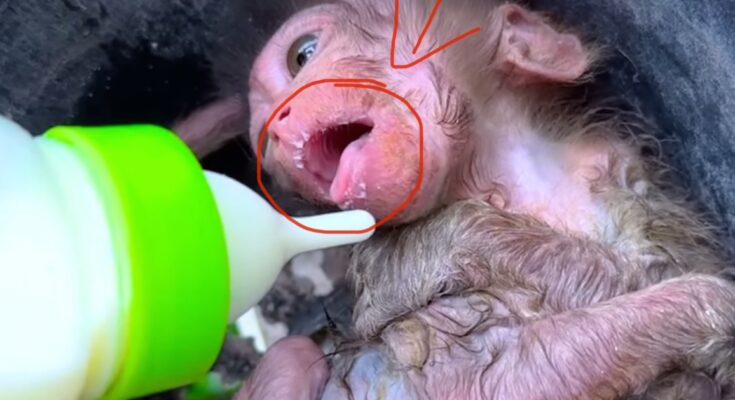Caring for a baby monkey is a rewarding yet delicate responsibility. These intelligent and social animals require attentive care, especially when they become sick. One of the most common health issues in infant monkeys is diarrhea, which can quickly lead to dehydration and other serious complications. Understanding the causes, symptoms, and proper care steps can make a big difference in your baby monkey’s recovery and long-term well-being.
Common Causes of Diarrhea in Baby Monkeys
Diarrhea in baby monkeys can stem from a variety of factors. The most frequent causes include dietary changes, bacterial or viral infections, parasites, and stress. Feeding unsuitable foods such as cow’s milk, sugary fruits, or human snacks can disrupt their digestive system. Unsanitary living conditions or contaminated water are also common sources of infection. Additionally, emotional stress — from separation, relocation, or lack of companionship — can upset a monkey’s digestive balance.
Recognizing the Symptoms Early
Early detection is key to preventing severe illness. Signs of diarrhea include frequent loose stools, foul odor, reduced appetite, lethargy, and dehydration. You may also notice your baby monkey’s fur becoming dull or its belly appearing bloated. If the diarrhea lasts more than a day or is accompanied by blood, vomiting, or fever, it’s crucial to seek veterinary attention immediately.
Step-by-Step Care at Home
1. Hydration is Critical:
Dehydration is the biggest threat when a baby monkey has diarrhea. Offer clean, boiled, and cooled water regularly. In some cases, oral rehydration solutions (ORS) made for infants or animals can help replace lost electrolytes. Never give human medications or sports drinks unless advised by a veterinarian.
2. Simplify the Diet:
Stop giving fruits, milk, or sugary foods until the stool firms up. Feed easily digestible items like mashed bananas, cooked rice, or plain porridge. If the baby monkey is still nursing, ensure the milk formula is prepared fresh each time and not left at room temperature for long periods.
3. Keep the Environment Clean and Calm:
Disinfect feeding bottles, dishes, and sleeping areas daily. Stress can worsen diarrhea, so keep your baby monkey warm, quiet, and comforted. Avoid loud noises or excessive handling while it’s unwell.
4. Monitor for Improvement:
Keep track of stool consistency, frequency, and your monkey’s energy levels. Improvement should occur within 24–48 hours if the cause is mild. Persistent or worsening symptoms need professional veterinary care, including stool testing and medication.
When to See a Veterinarian
If your baby monkey’s diarrhea continues for more than two days, if there’s visible blood, or if the monkey refuses to eat or drink, consult a wildlife or exotic animal veterinarian. The doctor may prescribe antibiotics, antiparasitic medication, or probiotics to restore gut health.
Final Thoughts
Diarrhea in baby monkeys can be alarming, but with prompt and proper care, recovery is usually quick. The key is maintaining hydration, hygiene, and a balanced diet, along with veterinary guidance when necessary. Prevent future episodes by feeding a stable, species-appropriate diet, keeping the habitat clean, and minimizing stress. With consistent love and attention, your baby monkey can return to its playful, healthy self in no time.



